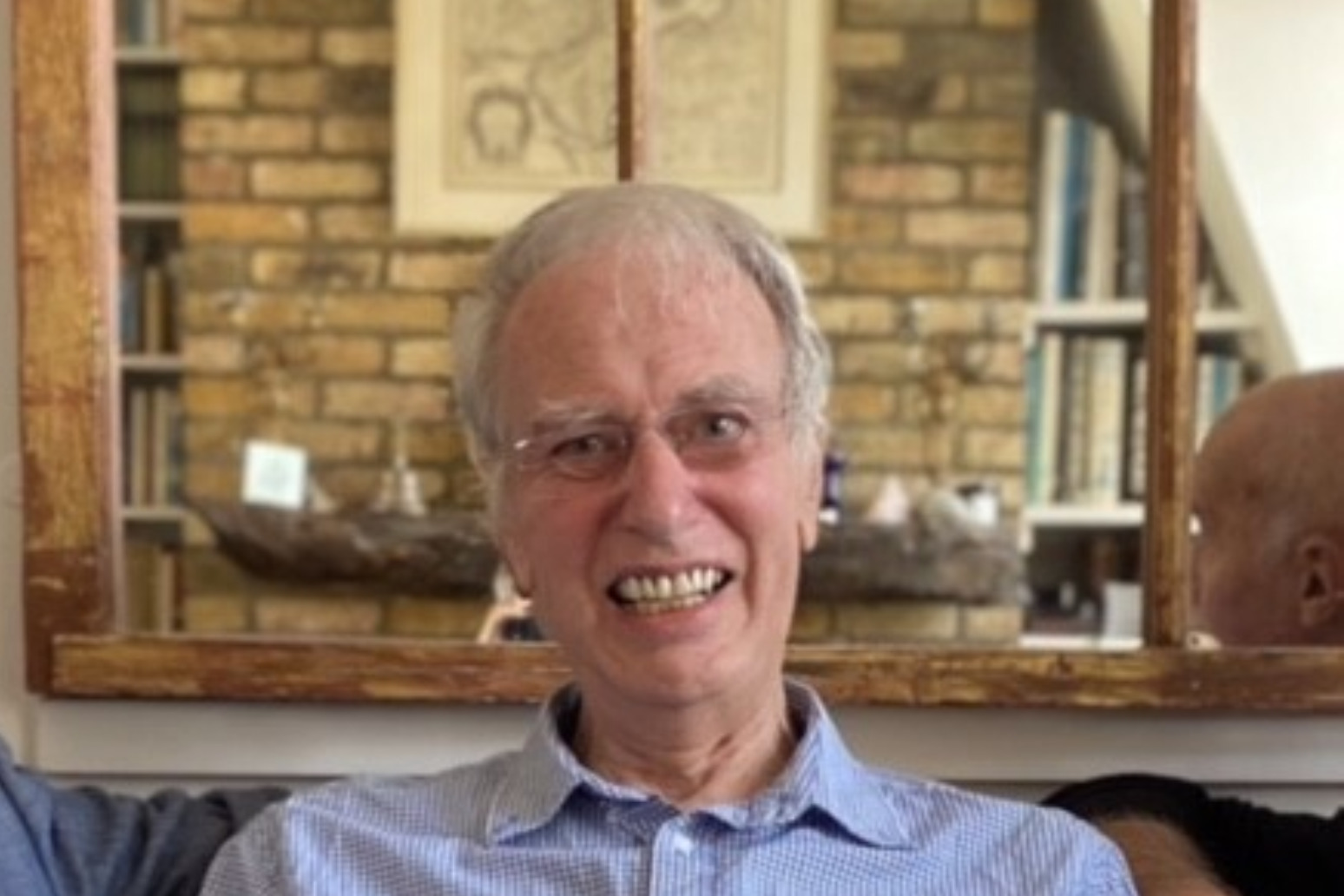
Terminally ill have been ‘failed’ by legislators, says man set to end life early
David Peace was diagnosed with motor neurone disease in 2019
A terminally ill man who plans to travel to Switzerland to end his life before the year is out says legislators have so far “failed” people on assisted dying laws.
David Peace, who was diagnosed with motor neurone disease in 2019, can no longer speak or swallow, receives nutrition through a tube into his stomach, and fears choking to death every day.
The 73-year-old, from Westminster, said he is not suicidal but is reluctantly being forced to end his life prematurely so he is spared “intolerable” suffering in future.
The current law means he needs to travel abroad before his disease progresses to the extent that he cannot manage the journey or administer the medication.
He hopes to travel to Dignitas in Switzerland in the next two months.
Mr Peace, who communicates by text to voice software on his iPad, was interviewed by email and his account was shared with the PA news agency.
He said: “Reluctantly I’m being propelled to bring forward my death by the relentless attacks on my body, with no hope of relief or cure, and no legal or dignified remedy in Britain other than continual suffering with more and more pills, opiates and sedation, tubes into the throat and other intervention.
“If the law in the UK were different my life would be longer and my end of life would not entail the hassle and difficulty of international travel at the most vulnerable point in my life.”
Assisted dying is currently banned in England and Wales, with a maximum prison sentence of 14 years.
A private member’s Bill, which would allow terminally ill adults to legally seek assistance to end their lives, will have its second reading in Parliament next week.
If passed, the Bill would enable adults who are of sound mind and have six months or less to live to be given life-ending medication with the approval of two doctors and a High Court judge.
A public consultation on a similar Bill was launched in Scotland last month, while the States Assembly of Jersey is expected to debate assisted dying in November.
Mr Peace said the legislation is needed to “rectify the dire lack of choice and control” for people with terminal illnesses, and it would offer them “a true choice, not an obligation, with proper safeguards to protect against coercion or depression”.
A change in the law is “long overdue”, he said, adding: “Our legislators have failed us thus far.”
It comes as polling for the charity Dignity in Dying suggests 74% of British people want Parliament to back the Bill.
Seventy per cent want to see assisted dying legalised by the next general election, according to the YouGov survey of 1,733 adults on October 7 and 8.
Half (52%) of respondents said they have witnessed the suffering of a terminally ill loved one.
Just 9% of those surveyed said parliamentarians should vote against the Bill.
Mr Peace said it is “heartening, but not surprising” to see such strength of public support.
Those objecting on religious grounds “must not impose their beliefs on others”, he said, while those morally opposed “must search their consciences”.
He added: “Who would not like to have a choice?”
Baroness Meacher, who introduced the Bill, said: “This is an issue that touches so many of us – half of Brits have cared for or seen a terminally loved one suffering.
“This includes myself and, I’m sure, many of my colleagues in the House of Lords.
“An assisted dying law, alongside improved funding for and access to palliative care, will help to ensure that dying people have access to all of the care, treatment and choices they want and deserve.”
Sarah Wootton, chief executive of Dignity in Dying, said: “Mounting evidence has shown that the UK’s blanket ban on assisted dying is not working and this poll clearly shows that the public understands the case for reform.
“The status quo does not provide sufficient choice or protection for our terminally ill citizens, puts loved ones in impossible positions, prevents healthcare professionals from providing all the end-of-life options their patients want, and forces the police to spend time and resource on cases which are clearly motivated by compassion and are rarely, if ever, prosecuted.”
Published: by Radio NewsHub